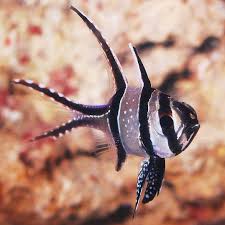The dragon (龙, lóng) holds a revered position in Chinese culture, symbolizing power, prosperity, and good fortune. While dragons are mythical creatures, their symbolism extends beyond art, literature, and folklore—they have also influenced Chinese cuisine. Many traditional dishes feature dragon-inspired names, designs, or symbolic meanings, reflecting the deep cultural connection between food and auspicious beliefs in Chinese society.

This article explores the role of dragons in Chinese culinary culture, focusing on special dishes that embody the dragon’s image, their cultural significance, and how they are enjoyed in festivals and special occasions.
1. The Symbolic Connection Between Dragons and Chinese Cuisine
1.1. Why Are Dragons Associated with Food?
In Chinese culture, the dragon represents:
- Power and Strength: The dragon is associated with the emperor, and dishes named after dragons symbolize royalty and prestige.
- Good Fortune and Prosperity: Many dragon-themed dishes are served during New Year celebrations and weddings, believed to bring wealth and happiness.
- Energy and Vitality: Dragons are linked to fire and water, essential elements in Chinese cooking techniques such as stir-frying, steaming, and boiling.
1.2. The Balance of Yin and Yang in Dragon-Themed Dishes
Chinese cuisine follows the philosophy of yin-yang (阴阳) balance, and dragon-inspired dishes often incorporate this concept.
- Spicy or rich dishes (Yang, 阳) represent the dragon’s fiery and dynamic nature.
- Cooling and mild dishes (Yin, 阴) balance the heat, ensuring harmony in the meal.
2. Famous Dragon-Inspired Dishes in Chinese Cuisine
2.1. Dragon and Phoenix Dish (龙凤配, Lóng Fèng Pèi)
One of the most famous dragon-themed dishes, the Dragon and Phoenix Dish symbolizes harmony and balance.
- Dragon (龙, Lóng) = Seafood (often lobster or eel), representing strength and power.
- Phoenix (凤, Fèng) = Chicken, representing grace and beauty.
- Served together, these two ingredients symbolize the unity of opposites, commonly enjoyed at weddings and New Year feasts.
2.2. Dragon Beard Candy (龙须糖, Lóng Xū Táng)
This traditional Chinese sweet resembles the long, flowing beard of a dragon, made by stretching sugar syrup into thin, silky threads.
- Originating in the Han Dynasty, it was once a royal delicacy.
- The candy symbolizes longevity and prosperity, often given as a gift during festivals.
2.3. Dragon Shrimp (龙虾, Lóng Xiā) – Chinese Lobster Dishes
In Chinese cuisine, lobster (龙虾, Lóng Xiā) is commonly associated with dragons because of its long body, powerful claws, and red color (which symbolizes good luck).
- Spicy Lobster (麻辣龙虾, Má Là Lóng Xiā): A popular dish in Sichuan cuisine, known for its bold chili and numbing Sichuan pepper flavors.
- Cantonese Lobster in Ginger and Scallions: A milder, aromatic dish served at banquets.
2.4. Dragon Claw Mushrooms (龙爪菇, Lóng Zhǎo Gū)
These unique mushrooms resemble dragon claws and are prized for their umami-rich flavor and medicinal properties.
- Often used in soups and stir-fries, symbolizing strength and longevity.
- Common in Buddhist vegetarian cuisine, believed to enhance Qi (life energy).
2.5. Dragon Whisker Noodles (龙须面, Lóng Xū Miàn)
These ultra-thin, hand-pulled noodles symbolize long life and strength, a staple during:
- Chinese New Year celebrations.
- Birthdays, as eating long noodles is believed to ensure a long life.
2.6. Dragon Boat Zongzi (龙舟粽子, Lóng Zhōu Zòngzi)
Zongzi, or sticky rice dumplings wrapped in bamboo leaves, are often shaped like dragon boats during the Dragon Boat Festival (端午节, Duānwǔ Jié).
- Filled with pork, red bean, or salted egg yolk, these dumplings pay homage to the legend of Qu Yuan.
- Symbolizes honor, remembrance, and unity.
3. Dragon-Themed Dishes in Special Occasions
3.1. Dragon Dishes in Chinese New Year Celebrations
During Lunar New Year, dragon-inspired dishes symbolize prosperity and success.
- Dragon-shaped dumplings (龙形饺子, Lóng Xíng Jiǎo Zi): Dumplings are shaped into dragons to attract good fortune.
- Dragon Fish (龙鱼, Lóng Yú): A whole fish dish, symbolizing abundance and unity in the family.
3.2. Dragon Banquets for Weddings and Royal Celebrations
- Imperial banquets featured dragon-themed dishes, such as Dragon Turtle Soup, which symbolized longevity and stability.
- Dragon and Phoenix Platters remain a wedding tradition, symbolizing the union of masculine and feminine energies.
3.3. Dragon Boat Festival and the Legacy of Dragon Cuisine
The Dragon Boat Festival (端午节), held on the 5th day of the 5th lunar month, features:
- Dragon Boat Races, where teams paddle in boats shaped like dragons.
- Special festival foods like dragon boat zongzi and spiced dragon eggs, symbolizing protection against misfortune.
4. How Chinese Chefs Incorporate Dragon Imagery into Modern Cuisine
4.1. Dragon-Inspired Food Presentation
Modern chefs craft dishes that visually resemble dragons, such as:
- Dragon Carved Watermelon Centerpieces for banquets.
- Dragon-Themed Sushi Rolls, using lobster, eel, and avocado.
4.2. Dragon Motifs in Dim Sum and Pastries
- Steamed Dragon Dumplings, shaped with scales and tails.
- Golden Dragon Mooncakes, featuring dragon engravings on the crust.
4.3. The Rise of Dragon-Themed Luxury Dining
- High-end Chinese restaurants serve Dragon Seafood Towers, stacked with lobster, crab, and shrimp.
- Dragon’s Breath Desserts, using liquid nitrogen to create a smoky effect, mimicking a fire-breathing dragon.
5. The Enduring Legacy of Dragons in Chinese Culinary Traditions
Even in modern Chinese cuisine, the dragon remains a powerful symbol. Whether it is a traditional New Year’s feast, a lavish wedding banquet, or a contemporary fine-dining experience, dragon-inspired dishes honor cultural traditions while embracing culinary creativity.
As Chinese food continues to evolve, the spirit of the dragon ensures that every dish carrying its name remains a symbol of strength, prosperity, and celebration.
Conclusion
From imperial banquets to street food delicacies, the dragon’s influence in Chinese cuisine is undeniable. Through symbolic dishes, creative presentations, and deep-rooted traditions, the mythical dragon lives on in every bite, bringing prosperity and harmony to those who enjoy its legendary flavors.

Leave a Reply